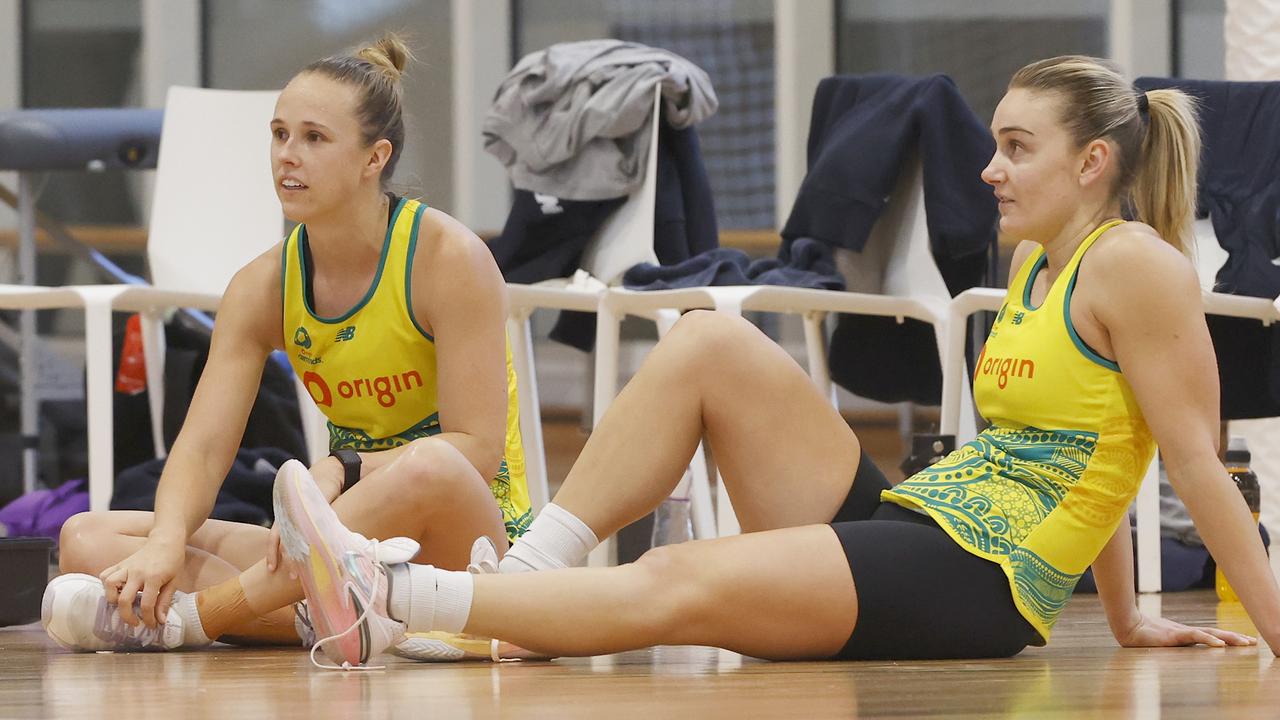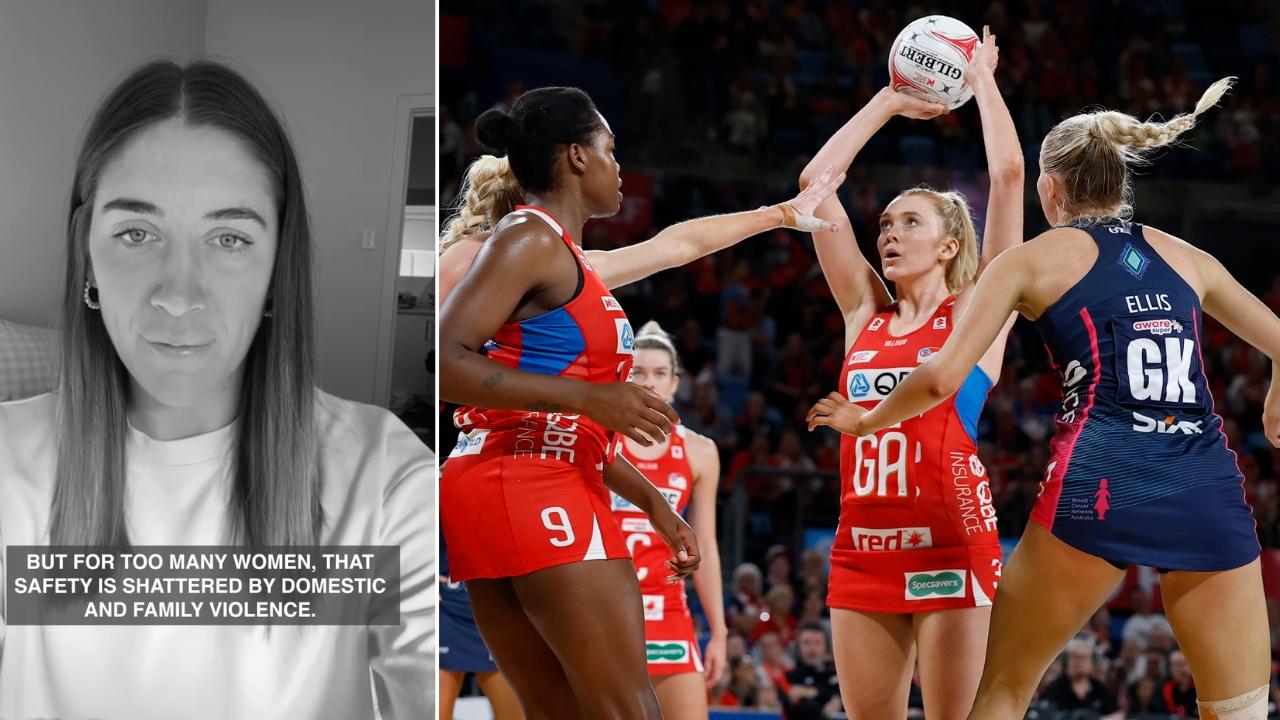Analysis: Which clubs are thriving and struggling with the super shot period this Super Netball season
The super shot was touted to change the game, but EMMA GREENWOOD and REBECCA WILLIAMS reveal the numbers which prove Super Netball’s innovation may be too risky for the reward.
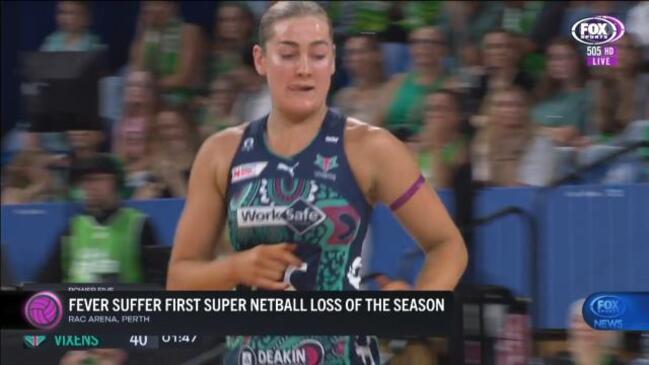
Netball
Don't miss out on the headlines from Netball. Followed categories will be added to My News.
The risk of Super Netball’s controversial super shot is proving greater than the reward, with an analysis by this masthead showing that even the most successful proponents are not edging ahead significantly in the power five.
An analysis of the first half of the 2024 season showed the teams jacking up most super shots in the so-called “power five” - the five-minute period at the end of each quarter during which attempts from a specified zone at the edge of the shooting circle are worth two points, double the regular score - are not making significant gains on their opponents.
NSW sides the Giants (117) and Swifts (110) have made the most super shot attempts so far this season and while both teams are shooting at better than 50 per cent, they are only marginally past break-even in the power five, failing to make the ground needed on their opponents after conceding a margin in normal time.
The teams’ “reactive” use of the super shot is something that puzzles Fox Netball commentator Cath Cox.
“I feel like at the start of the year … teams were being far more proactive in the use of it and they weren’t waiting to be down,” Cox said.
“But it has also been a very interesting season in that there has been quite big score lines, quite big margins, like massive margins this season, it has been quite mind-blowing.
“I feel like they are finding themselves being reactive instead of proactive because of the nature of some games this year.
“We talk a lot about the fact that we think you have to be proactive in shooting them to be able to stay competitive throughout the season, but if you look at those two teams (Giants and Swifts) who do it the most, they are sitting in the middle and at the bottom of the ladder.
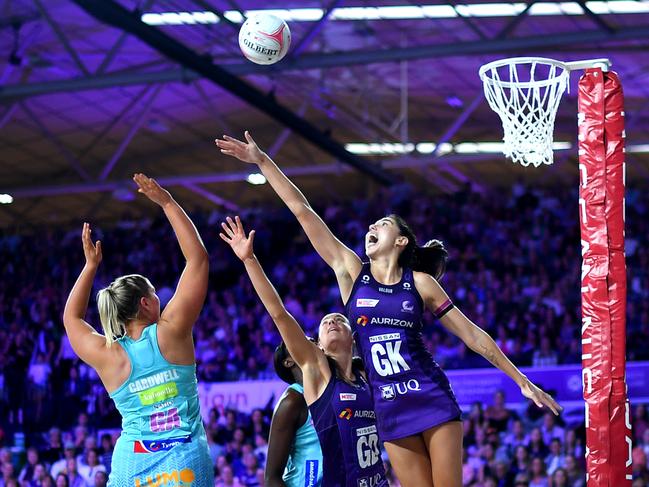
“The Thunderbirds shoot hardly any and they are sitting at the top. It’s interesting, it’s a bit of a head scratcher this season as to what’s happening with it, actually.”
Those dominating “normal time”, the first 10 minutes of each period, are generally maintaining, or increasing their lead in the game without needing to resort to the two-point shot.
League leader West Coast Fever has the best overall goal differential (+93) as well as leading the differential in the super shot period.
That’s despite making only the sixth-most super shots in the first half of the season.
The Fever’s 67 attempts sit well below NSW sides the Giants (117) and Swifts (110), the Perth side happy to maintain their lead by pumping the ball into dominant holding shooter Jhaniele Fowler-Nembhard for high percentage one-goal shots.
They do not completely ignore the super shot though, with goal attacks Shanice Beckford and Olivia Wilkinson, as well as Fowler, making attempts and converting at a league-leading 61 per cent in opportunities that generally enhance their lead.
The Fever are well ahead in goal differential in the first 10 minutes as well, just behind the Adelaide Thunderbirds, whose shooter, Romelda Aiken-George, is, like Fowler-Nembhard, a dominant close-to-post player who has led her side to a +74 advantage in normal time.
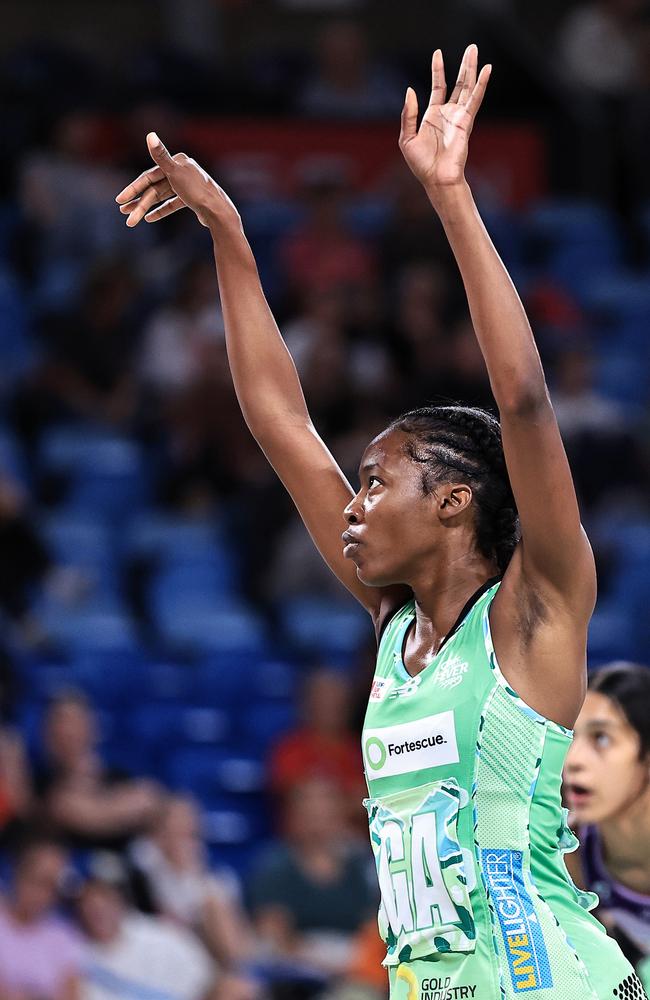
The Thunderbirds have made just 31 super shot attempts in the first half of the season, converting 15 of those and while they are just below the break-even point during the power five, their decision-making is no surprise to Cox.
“If I had (Fowler-Nembhard) as a goal shooter I would be shooting them (one-point shots) all day long and she’s going to get the rebounds as well,” Cox said in thinking that relates just as much to the Thunderbirds and Aiken-George.
“It’s really interesting. I think the one-point game has shown its strength a lot more this season, as the season has progressed because it didn’t feel that way at the start.
“But the teams are understanding there is more importance probably around centre-pass conversion rates and minimising errors and just scoring off their ones and keeping scoreboard pressure that way.”
It’s not always the game-clincher though, with the T-Birds’ only two losses this season coming in games in which the super shot differential proved the difference in the match.
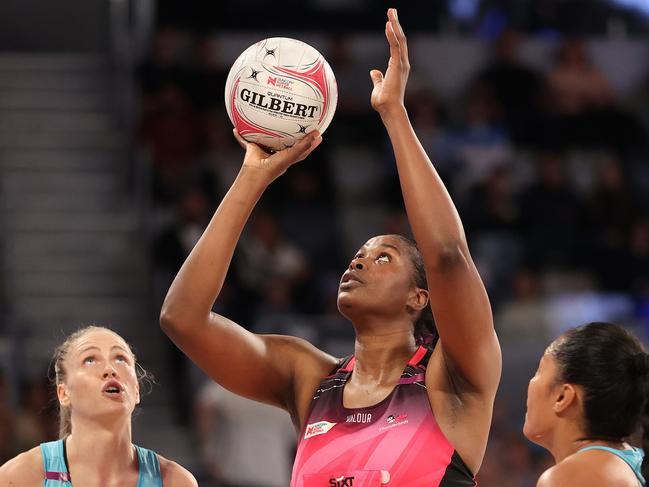
Adelaide’s 54-53 loss to the Vixens in round 2 came after the home side converted eight of their 15 super shot attempts and won the power five periods by a combined 12 points while the T-Birds missed their only two two-point attempts.
They made more super shots than the Fever (4-3) in their 57-56 loss in Perth but lost the 20 minutes of power five play through the match by three points, something that eventually made a difference to the outcome.
The positive normal-time differential of the Fever, Vixens and T-Birds is reflected in their positions on the ladder but it’s not the case for the only other club to lead regular time overall, with pre-season favourites the Sunshine Coast Lightning having by far the worst goal difference in the super shot period at -38 in a stat that could point at the flagging form of former Diamond Steph Fretwell.
“Sadly for Steph (Fretwell) it does because you know Cara Koenen doesn’t shoot them,” Cox said.
“But again that’s an enormous amount of pressure on those teams that have one player that will shoot the super shot.
“Again that is another whole level of pressure on a particular player, particularly when she has been dealing with injury and she has not really been out there the entire time.”
More Coverage
Originally published as Analysis: Which clubs are thriving and struggling with the super shot period this Super Netball season



